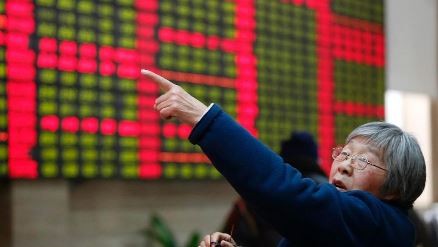Chinese investors have been attracted to mutual funds in offshore markets due to the falling value of the renminbi (RMB), the Economic Observer reported.
According to the report, a daily cap of 1 million yuan ($157,000) on the subscription of mutual funds in overseas markets was introduced by GF Fund Management on Sept. 11, as the company is about to use up its quota under China's qualified domestic institutional investor (QDII) scheme.
To have capital control in place, the country has set up the QDII scheme to cap overseas investments. In the past eight years, investment products, including mutual funds focusing on overseas markets created under the QDII scheme, had not been attractive in China as returns were partly eroded by the renminbi's appreciation, the report said.
Chen Yongqiang, a fund manager at China Asset Management Co., said that since the first QDII fund was created eight years ago, the yuan's value has appreciated 30 percent against the U.S. dollar.
As of the end of June, there were a total of 123 QDII funds in China, with net assets of 85.7 billion yuan ($13.4 billion). When the renminbi declined 4 percent against the U.S. dollar in August, interest in QDII mutual funds on American markets and in U.S. dollar-denominated products grew, the paper said.
Wu Xiangjun, head of international business at Shanghai-based Guotai Asset Management, said that the investors' need to raise their U.S. dollar assets holdings has increased based on the economic recovery in the U.S., an expected rate-hike cycle from the Federal Reserve and the instability of the yuan's value.
Wu, however, said that the Fed's expected interest rate hike will only have a short-term impact on the American stock markets, as the company holds a positive outlook for U.S. stock performance in the midterm.
The report added that although investors' interest in offshore funds has grown, China's State Administration of Foreign Exchange (SAFE) has not issued a new QDII quota in the five months since March, the longest suspension of new issuance in six years.
On the other hand, China has raised the quota for foreign investment in the country by $16.4 billion to $140.3 billion, under the qualified foreign institutional investor scheme.
The suspension of new QDII quota issuances has been related to China's efforts to raise the yuan, the report said.



























